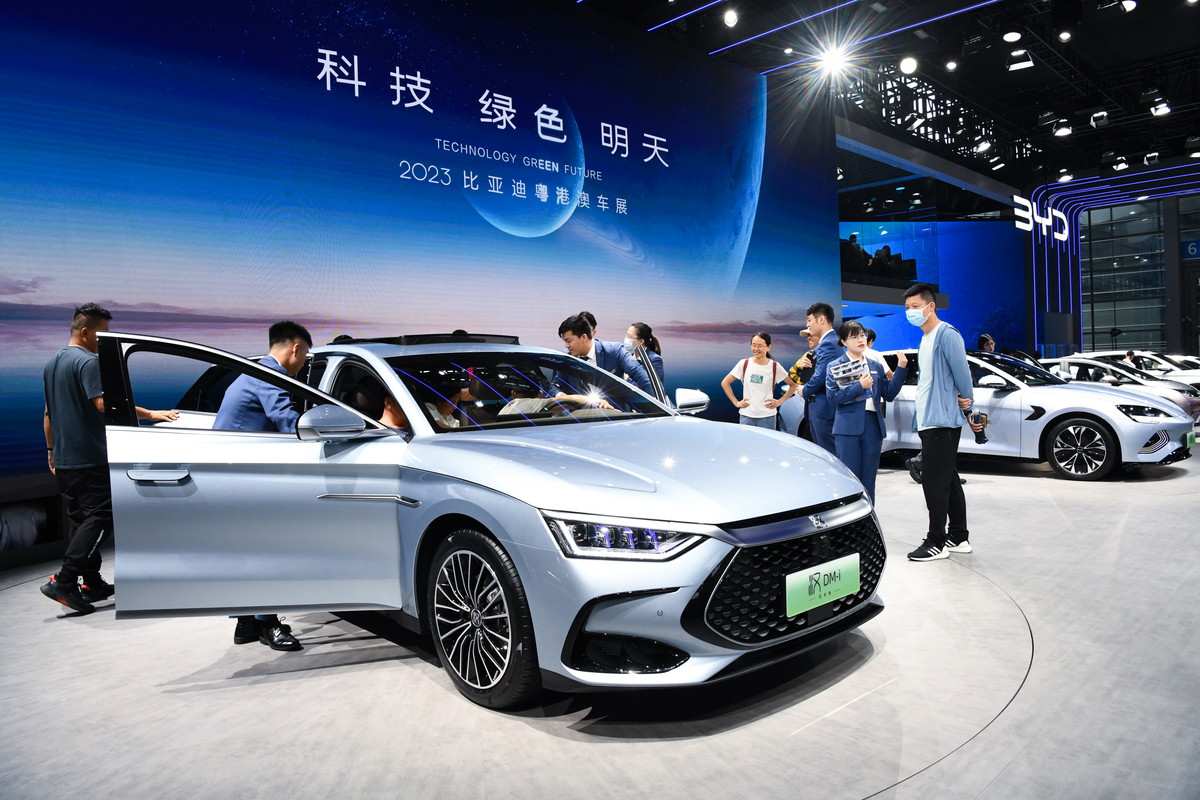Automotive industry embraces change as local brands seize opportunities
China Daily | Updated: 2023-11-17 10:06

GUANGZHOU - This year has seen a new trend in China's auto market — sales of new energy vehicles from domestic automakers such as BYD and GAC Aion continue to rise, while joint venture brands face sales declines or even suspended production.
Recently, Japan's Mitsubishi Motors announced it will end local production of Mitsubishi-brand vehicles in China and transfer its stake in a JV in China to its Chinese partner, Guangzhou Automobile Group Co Ltd.
After restructuring is completed, GAC Mitsubishi's production capacity will be accepted by GAC Aion, an NEV subsidiary of GAC Group based in Guangzhou, capital of South China's Guangdong province.
On July 3, GAC Aion produced China's 20 millionth NEV in Guangzhou — a remarkable milestone for the country's NEV sector.
As China's NEV market maintains its strong growth momentum, new partnerships between foreign and domestic car brands have also been forged.
Volkswagen in July reached an agreement to buy a 4.99 percent stake in Chinese electric vehicle startup Xpeng and co-develop two electric vehicle models for the Chinese market.
The cooperation was a major milestone in China's intelligent EV manufacturing sector and an important sign that China's auto-making abilities are recognized by the world's leading carmakers, Shenwan Hongyuan Securities said in a research note.
For decades, the Chinese auto industry has pursued advancement of its innovation capacities in fields ranging from whole vehicles to communication modules, power chips and other electronic components.
World-leading auto parts supplier Valeo, which is based in France, launched its Valeo (Shenzhen) intelligent manufacturing center earlier this year.
The center expects its sales to maintain a high annual growth rate of over 20 percent for the next five years, said Zhou Song, president of Valeo China.
"Shenzhen has a relatively complete new energy automobile industry foundation. Its resources and advantages in the development of the intelligent car industry strengthen our confidence," Zhou said.
Chinese NEV giant BYD's net profit for the third quarter reached 10.4 billion yuan ($1.4 billion), an 82.2 percent increase from a year earlier, while that for the first nine months increased 130 percent to 21.4 billion yuan, said the company in its quarterly financial results.
The report also said that the company recorded revenue of 162 billion yuan in the third quarter, a year-on-year jump of 38.5 percent. In this regard, its revenue reached 422 billion yuan in the first nine months, an increase of 58 percent year-on-year.
Market analysts believe that China's auto consumption potential remains resilient, and foreign auto companies have broad space for development in China.
In 2022, China's new energy passenger cars had a 63 percent share of the global market, said the China Passenger Car Association.
"The rise of domestic Chinese car brands indicates the high-quality development of China's automobile industry, particularly its more competitive NEVs," said Cui Dongshu, secretary-general of the CPCA.
XINHUA - CHAIN DAILY
























